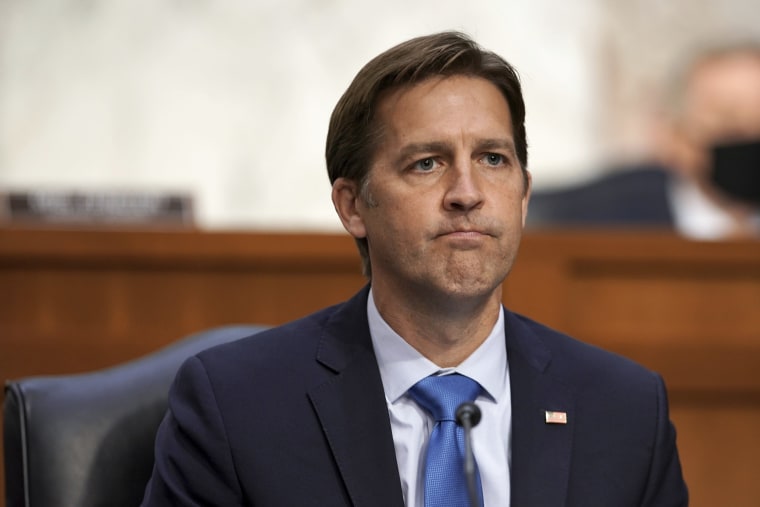For opponents of the Senate's existing filibuster rules, there's been evidence of heartening momentum of late. Last Wednesday, for example, Sen. Angus King of Maine -- an independent who caucuses with Democrats -- made the case for reforms in an interesting op-ed, reversing course on his earlier position. A day later, President Joe Biden held a press conference and conceded that the 60-vote threshold is "being abused in a gigantic way."
After expressing support for the so-called "talking filibuster," the president added, "We're going to get a lot done. And if we have to -- if there's complete lockdown and chaos as a consequence of the filibuster, then we'll have to go beyond what I'm talking about."
Biden went on to suggest exceptions to the filibuster rule may be necessary for "certain things that are just elemental to the functioning of our democracy -- like the basic right to vote."
One day later, Sen. Patty Murray (D-Wash.), the #3 Democrat in the Senate leadership, told the Spokesman-Review in Spokane that she's also ready to sidestep the filibuster in order to help bolster our democracy.
"The For the People Act is essential to making sure our democracy stays a democracy," the senator said in a written statement, "and I will consider every legislative option, including an exemption to the filibuster, to ensure it can be signed into law."
Time will tell whether these shifts will have the desired effect -- which is to say, whether Sen. Joe Manchin (D-W.Va.) will care enough to take steps to protect voting rights -- but Republicans appear to be pushing back by focusing on hypocrisy.
I heard last week, for example, from Sen. Ben Sasse's (R-Neb.) office, which sent me a written statement on behalf of the Nebraska Republican.
"Senator Biden was a relentless defender of the filibuster -- but now that President Biden looks in the mirror and sees FDR, he's keeping the door open for a complete 180 to blow up the institution he spent four decades defending. He was right when he summed it up this way numerous times: 'the Senate ought not act rashly by changing its rules to satisfy a strong-willed majority.'"
Sen. Lindsey Graham (R-S.C.) pushed a similar line yesterday with Fox News' Chris Wallace, insisting that Biden "made an hour speech when he was a senator suggesting the filibuster was the best thing for the Senate to make it different in the House."
For now, let's put aside skepticism over whether crying "hypocrisy" is an effective rhetorical strategy. The fact remains that the core observation Republicans like Sasse and Graham are making is largely accurate: Biden, who served several terms in the Senate, was an ardent institutionalist and defender of its rules. The Delaware Democrat's position has, for lack of a better word, evolved.
But there's a relevant detail Sasse and Graham are overlooking: Biden has changed his approach as the Senate itself has changed.
The Senate maintains an updated table, chronicling cloture votes over the last century, using three metrics: (1) cloture motions filed (when the majority begins to end a filibuster); (2) votes on cloture (when the majority tries to end a filibuster); and (3) the number of times cloture was invoked (when the majority successfully ends debate). I put together a chart to help drive the point home:

By all three measures, obstructionism that was once rare has been made routine. When Biden was first elected to the Senate in 1973, there were 44 cloture motions filed in the Senate during its two-year session -- a relatively high total by the historical standards of the time. By the 1993-1994 Congress, as Republicans desperately tried to block Bill Clinton's agenda, that number had nearly doubled, growing to 80. In the 2007-2008 Congress, when Mitch McConnell scrambled to stand in the way of a new Democratic Congress, the tally reached 139.
In the 2013-2014 Congress, cloture motions topped 200 for the first time. In the 2019-2020 Congress, they reached 300 for the first time.
None of this, of course, accounts for worthwhile legislation that senators didn't even bother to pursue, knowing that their proposals wouldn't generate a supermajority in the chamber.
If Republicans want to argue that many leading Democrats have changed their minds about the propriety of filibusters, they'll have plenty of accurate content to work with. But context matters: the routinization of once-rare filibusters has changed the nature of the debate.

